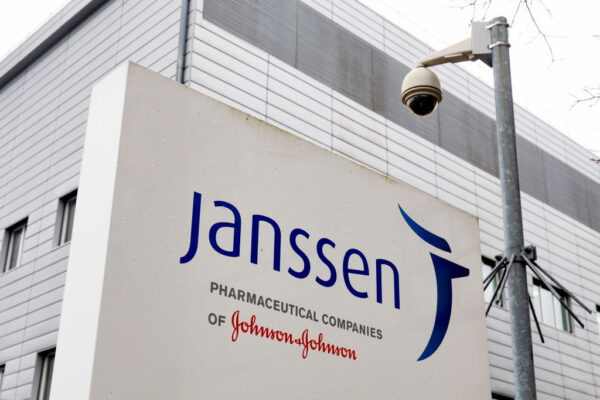
Plaque psoriasis is already treatable with injectable biologic drugs, including two from Johnson & Johnson. Drugmakers are making headway with alternatives that offer efficacy comparable to biologics, but in pill formulations. J&J has one such drug in its pipeline and it now has mid-stage data that are keeping it in the mix of companies aiming to treat psoriasis with pills.
Compared to a placebo, J&J said a greater proportion of patients treated with the drug JNJ-2113 achieved a 75% improvement at week 16 according to the Psoriasis Area and Severity Index (PASI), a scale used to measure the size and severity of the skin lesions caused by psoriasis. This measure, PASI 75, was the main goal of the study. Secondary goals were measuring the proportion of patients who achieved improvement of 90% and 100%, and the company said that the drug also hit these marks.

With the Rise of AI, What IP Disputes in Healthcare Are Likely to Emerge?
Munck Wilson Mandala Partner Greg Howison shared his perspective on some of the legal ramifications around AI, IP, connected devices and the data they generate, in response to emailed questions.
The preliminary results from the dose-ranging study were presented on Tuesday during the World Congress of Dermatology meeting in Singapore. With those encouraging data in hand, J&J said it would advance the drug candidate to Phase 3 testing.
JNJ-2113 is a peptide designed to block interleukin-23, or IL-23, a signaling protein that plays a role in inflammatory conditions, including psoriasis. J&J markets two biologic drugs that address this target to treat the skin disorder. Antibody drug Tremfya blocks IL-23. Stelara is an antibody designed to block both IL-23 and IL-12.
The Phase 2b test for JNJ-2113 enrolled 255 patients with moderate-to-severe plaque psoriasis who were randomly assigned to receive one of five daily doses of the experimental J&J therapy or a placebo. Patients were treated for up to 24 weeks.
On the measure of PASI 75, the best result was in the twice-daily 100 mg dose group, where 78.6% (42 participants) met this main goal. This dose was the highest of the doses tested, and it also led to the best responses in the secondary endpoints. J&J said 59.5% (42 participants) of those treated with this twice-daily dose achieved PASI 90, while 40.5% (42 participants) achieved PASI 100.
“Until now, advanced psoriasis treatments have been largely limited to injectable biologics,” Lloyd Miller, vice president, immunodermatology disease area stronghold leader at Janssen Research & Development said in a prepared statement. “An oral therapy that can uniquely inhibit the IL-23 pathway by directly targeting the IL-23 receptor could help address the needs and preferences of patients, and may offer greater freedom, with the aim of driving greater adoption of advanced treatment.”
J&J said its psoriasis drug was well tolerated, with adverse events comparable across all of the treatment groups. The most frequent complication were infections and infestations that were reported in 30.2% of participants in the treatment arms compared to 27.9% of those in the placebo group. Covid-19 was the most common infection. Others include nasopharyngitis and upper respiratory tract infection.
JNJ-2113 came from the labs of Protagonist Therapeutics. In 2017, the Newark, California-based biotech began an inflammatory bowel disease research partnership with Janssen Biotech, a J&J subsidiary. Two years later, the partners amended the pact to include drug candidates designed to block IL-23 receptors. In 2021, the pact was amended yet again, with Janssen taking the lead on development of the IL-23 programs, including the one now known as JNJ-2113. Protagonist is eligible for up to $900 million in milestone payments.
Bristol Myers Squibb blazed the path for oral psoriasis drugs with FDA approval last year for Sotyktu, a small molecule designed to block a target called TYK2. Cross-trial comparisons are difficult, but Phase 3 results for the BMS pill showed that 69% of participants achieved PASI 75 after 24 weeks. Takeda Pharmaceutical is also pursuing TYK2 with a small molecule from Nimbus Therapeutics. In March, Takeda reported Phase 2b data for the drug, TAK-279, showing that the highest two doses led to 68% and 67% of patients respectively achieving PASI 75. Ventyx Therapeutics has completed enrollment for the Phase 2 test of its TYK2 inhibitor, VTX958. Preliminary data are expected in the fourth quarter of this year.
Companies are developing oral psoriasis drugs for other targets. Dice Therapeutics has reported human proof-of-concept Phase 1 data for lead program DC-806, a small molecule designed to block IL-17. Based on those encouraging results, Eli Lilly last month struck a $2.4 billion deal to acquire Dice.
Photo: Niels Wenstedt/BSR Agency, Getty Images














